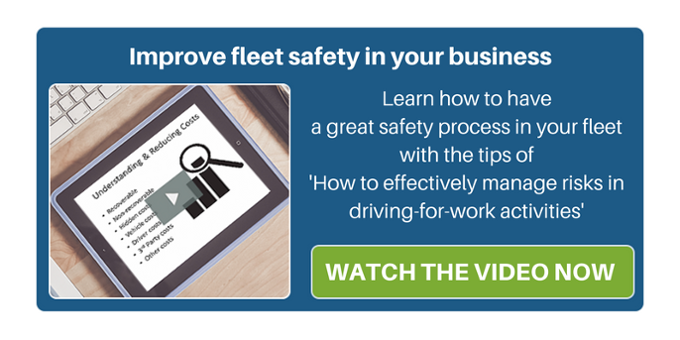
Brake, the road safety charity—an organisation we support because we share the core ideal of creating a safer working environment and a more responsible generation of drivers—has recently made public the results of a fleet safety survey.
The survey was conducted on 239 fleet operators—the majority of whom are in the UK—covering a total of 190,000 vehicles, with fleets ranging from small to very large (the biggest fleet consists of over 80,000 vehicles). The survey focused on six different areas of road safety which correspond to the Brake campaign “The Pledge”, and respondents were quizzed on the companies’ approach to road risks and the use of policies covering the following areas:
· Speed
· Alcohol and drugs (impaired driving)
· Eyesight, fatigue and health
· Distraction
· Vehicle maintenance
· Sustainability
Here are some of the key findings the survey focused on:
Regarding speeding: 28.2% of the interviewed do not have any speed policy in place and half of the surveyed who have, do not include in their policies any information on the procedures carried out if a driver fails to comply with the policy. It is a very important that disciplinary rules are included in such a policy so drivers understand the consequences of their rule breaking behaviour.
Regarding alcohol and drugs: 74.7% of employers do take disciplinary actions against drivers or staff caught with alcohol or drugs, with half of them dismissing employees. Half of the respondents offer advice to employees they believe are at risk or have a substance misuse problem, and an increasing number of companies educates them on the risks of drink driving.
Regarding tiredness and sight: 75% educate drivers on the risks of driving when fatigued, and 38.7% address the risks of driving with poor eyesight. Only 38% require drivers to take appropriate breaks in their journeys, and 34% require staff to have an eyesight test every 2 years.
Regarding distraction: an increasing number of companies are setting up global policies banning all mobile phone use (including hands-free) while driving.
Regarding maintenance: 94.1% have policies stating walkaround checks should be completed daily or before each journey. But more than 70% cited price and running costs as a top priority when purchasing, not vehicle safety ratings.
Sustainability is important for some respondents as individuals, but only 35% of the interviewed characterised it as important to their organisation. And only around 7% prioritise environmental concerns when purchasing or leasing vehicles.
To conclude: while some progress has been made in some areas and companies seem to be sensitive regarding some driving behaviours, such as speeding or drink driving, maintenance and sustainability are still considered unimportant to the safety of a fleet.





